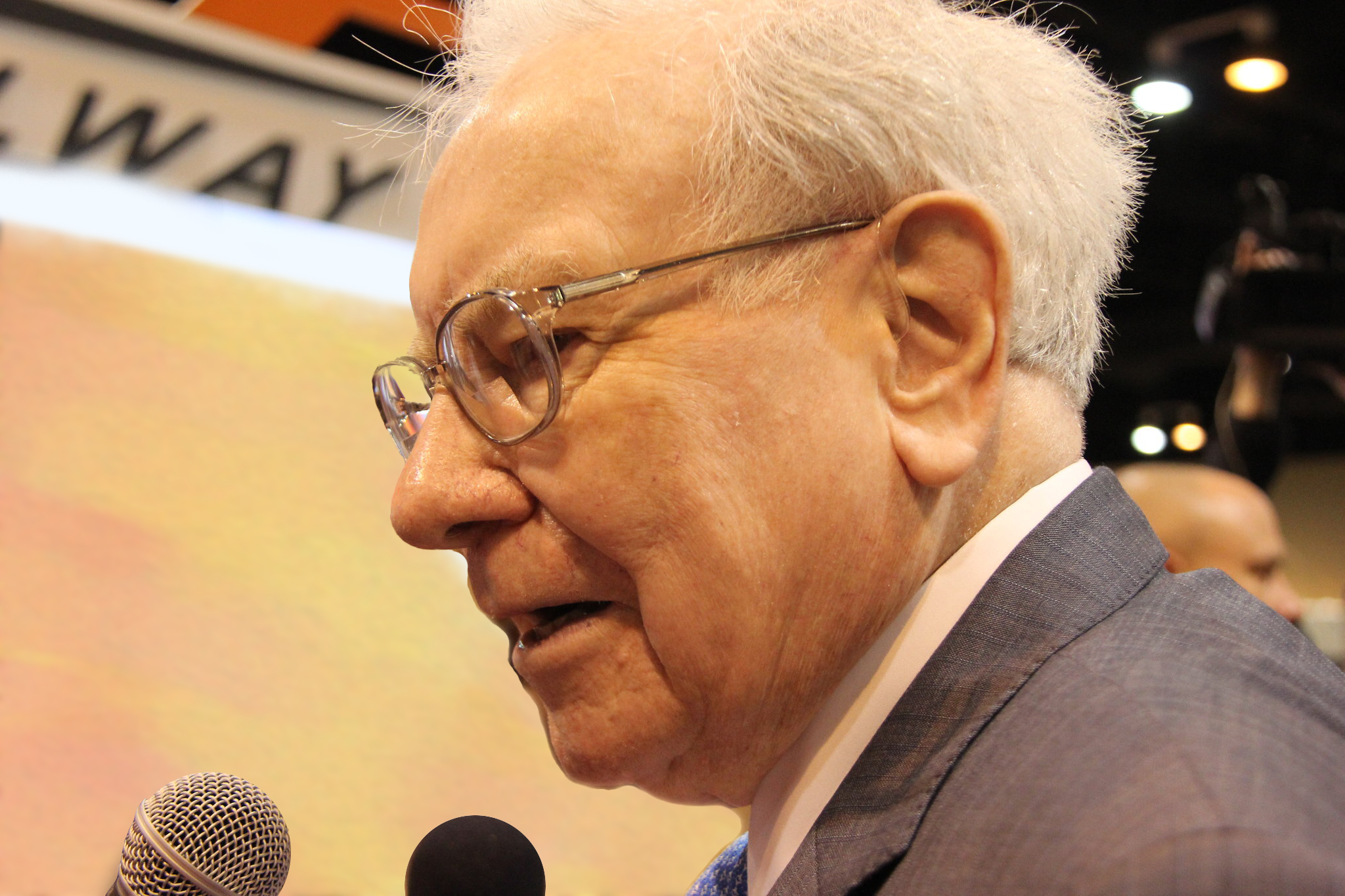The catchphrase used to be, "When E.F. Hutton talks, people listen." Now when it comes to financial advice, you could easily insert the name Warren Buffett.
Does the Sage of Omaha need an introduction? Just in case, according to Forbes Buffet is the fourth-richest man in the world. As a general rule, he got that way by investing in companies he can easily get his head around, have powerful brands, have wide moats, and are undervalued.
Through his company, Berkshire Hathaway (NYSE: BRK-B), Buffet invests in a little bit of everything, including bank stocks. Here are Berkshire's top five bank holdings, along with a quick explanation of why Buffett and his team might like them:
5. M&T Bank (MTB 0.27%)
At around $551 million, M&T is Berkshire's smallest bank holding. It's a regional bank assets of about $81 billion. Not big by JPMorgan Chase standards, but big enough to do serious business and potentially exhibit serious growth, which it's already done.
In the past year, M&T's share price has increased by 18.68%. The bank also has a price-to-book ratio of 1.41: indicating it's not a screaming value, but also that the bank certainly isn't overvalued.
Small enough to get your head around, but big enough to make things happen, all at a reasonable valuation: From a Buffett perspective, what's not to like?
4. Bank of New York Mellon (BK 0.68%)
At around $555 million -- just slightly more than M&T -- BNY Mellon is Berkshire's next biggest bank holding. But BNY is a big bank, the country's eighth largest. It has nearly $360 billion in assets on its balance sheet.
That said, it's run rather conservatively. Most of the business it does is with other banks, all of which is conducted in a straightforward manner. Ever read about BNY in the news, getting fined left and right by regulators? Or being sued by angry investors?
No, BNY is a throwback to the days when banks were beautifully boring, yet profitable. BNY has returned 14.64% to investors in the past year, and the P/B of is 0.93: all right up Buffet's alley.
3. U.S. Bancorp
At a little over $2 billion, U.S. Bancorp is Buffett's next biggest bank holding. Like BNY Mellon, it's a big bank, with assets of around $353 billion.
Also like BNY Mellon, U.S. Bancorp is another bank that -- for all its immensity -- also operates relatively under-the-radar. And while its P/B is little high -- 1.83 -- its return on equity is a fabulous 14.59%, which means it's out there making good on Buffet's investing dollars.
In the past year, it's only returned 4.86% of positive share-price growth, but Buffett doesn't necessarily go for high-flyers. He'll typically take steady, low-drama growth any day of the week.
2. American Express (AXP 3.45%)
This is a bit of cheat. AMEX isn't a bank, but it's a big financial services company that Buffett likes enough to hold more than $10 billion of.
AMEX is a classic American company that's been around forever, and that -- like Coca-Cola and General Electric, other Buffet holdings -- always performs well for both customers and investors in the long run. Over the past year, the share price of AMEX increased by 12.68%, and its ROE is a staggering 23.79%.
Performance. Stability. A powerful brand name. There's no surprise AMEX is one of Buffett's biggest holdings.
1. Wells Fargo (WFC 1.95%)
From a Warren Buffett perspective, we now come to the king of stocks. Wells Fargo is not only Berkshire Hathaway's biggest single financial holding, it's Berkshire's biggest single holding, period: more than $16 billion.
For all its immensity, and for how involved it was (and still is) in the U.S. mortgage market, Wells came through the boom and bust in excellent shape: smartly staying away from the excesses that sunk or caused endless trouble for other big banks.
And in the last year, Wells has returned 8.2% to its investors. It's another big, well-run, beautifully boring yet profitable bank. Again, right up Warren Buffett's -- or anyone's -- alley.
Foolish bottom line
Just because one person invests one way, even if he is the fourth-richest person in the world, doesn't necessarily mean you should do the same. But an investing philosophy like Buffet's -- backed up by years of outstanding performance -- is certainly worth considering seriously.










